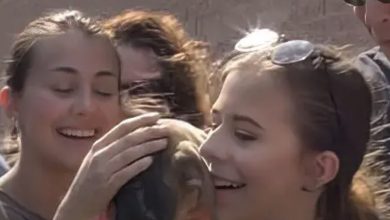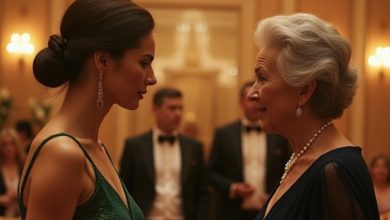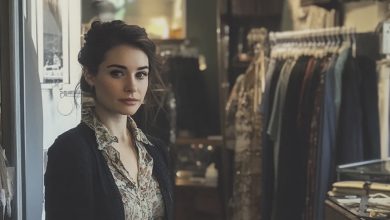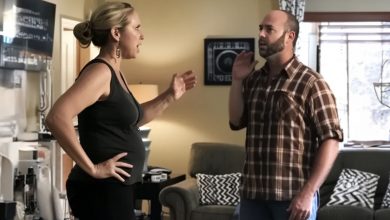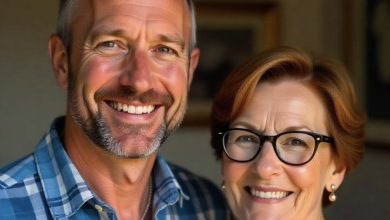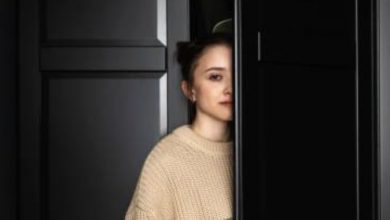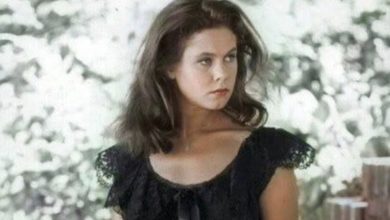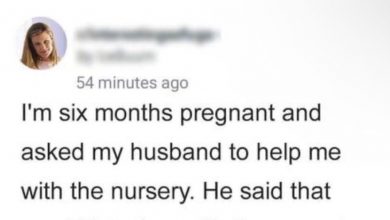I Rushed to the Hospital for My Sister—But She Was Beside Me: What We Discovered Next
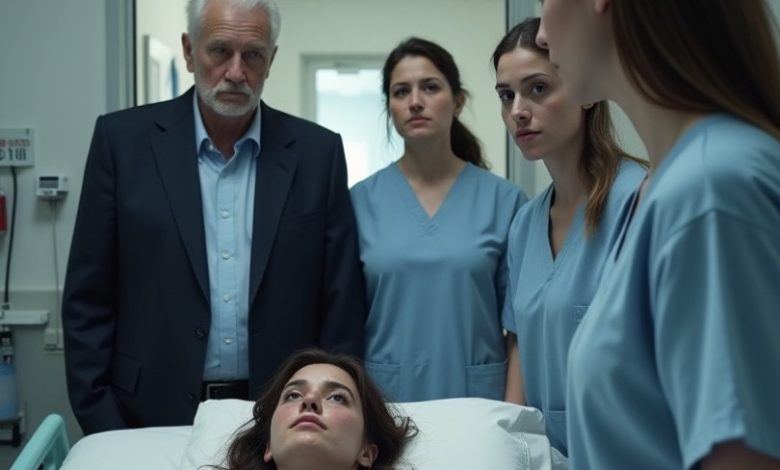
A woman got a call from the hospital saying her sister had been in a crash. She panicked—because her sister was sitting right beside her. At the hospital, she met a woman who looked exactly like them, and uncovered a secret their parents had hidden for decades.
The late-day light slanted through the wide bay window of Kate’s apartment on the North Side of Chicago, striping the polished floor with warm bands of gold. The place smelled like two things that always felt like home to her and her sister: fresh coffee and the faint sweetness of oil paint that followed Laura wherever she went. If the sisters were a diptych, they were complementary halves: Kate, the financial analyst, lived by calendars, numbers, and tidy corners; Laura, the freelance painter, thrived on smudged palettes, unplanned afternoons, and whatever beauty wandered into the room.
“You’re going to laser a hole through that tablet if you keep glaring,” Laura said, still sketching the way the light fell across a drooping pothos.
Kate pushed dark hair behind her ear and exhaled. “Quarterly forecasts again. They’re so rosy they belong in fiction.” She set the tablet down and kneaded the bridge of her nose. Their faces were nearly identical, but where Laura’s held an easy softness, Kate’s carried a sharpened focus.
“Leave fiction to me,” Laura murmured, pencil whispering across paper. “You spoke to Mom and Dad this morning?”
“Mm-hmm,” Kate said, rising to top off both mugs. “Dad’s in negotiations with aphids on his roses, and Mom wants to know if I’ve ‘met anyone nice.’ I swear, your engagement to Mark took you off the hook and moved the target squarely onto me.”
“They just want you happy,” Laura said, amused.
“They want grandbabies,” Kate answered, dry as dust, “and for us to remain invisible online. Have you heard Mom’s new PSA? ‘Kate, sweetie, don’t post so many photos of your apartment. People are… peculiar. Be careful.’” She mimicked their mother’s anxious hush so neatly that Laura laughed without looking up.
“She said the same thing after we posted our engagement photos,” Laura grinned. “‘Laura, it’s a lovely picture, but is it prudent to put it everywhere? We worry.’” The line was practically a family motto. Their parents—Richard and Eleanor Hayes—were devoted and protective, but privacy was their religion. No loud spotlights. No probing questions about “before the girls.” Whenever that era came up, Richard would retreat behind a foggy smile. “Busy years,” he’d say. “New business, babies, a blur.”
Kate carried the coffee back and sat across from her sister. “Speaking of the blur,” she said, eyes glinting, “I went digging through the closet for tax receipts and found an old photo album.”
Laura’s pencil paused. “Which one?”
“The baby book. And it’s just as strange as I remember. Dozens of me in a yellow onesie, dozens of you in pink—but almost no photos of the two of us together for the first two years. And never a shot with both Mom and Dad in the frame. It’s always one or the other.”
Laura frowned lightly. “Mom always said their photographer canceled and they never rescheduled. And that we were such a handful they had to tag-team.”
“I know,” Kate said, sipping. “It’s just… a void. Two missing years. It reads like someone curated our family history with redactions.”
They let the quiet settle, the gentle silence of sisters who didn’t need to fill every gap with words. The oddities of their past were like a crooked chair in a familiar room: noticeable, sometimes discussed, but ultimately accepted. Eccentricities, not warnings.
Sometimes a life built on a careful lie still functions like a life. It holds dinners and birthdays and Sunday calls. But truth has a way of standing just outside the frame, patient and hungry.
Kate’s phone rang, shrill and insistent. Unknown number. She almost swiped it away, but something in her gut said answer.
“Hello?”
“Is this Katherine Hayes?” a calm professional voice asked.
“This is Kate.”
“I’m calling from St. Mary’s Hospital,” the woman said. “My name is Nurse Collins. I’m contacting you regarding your sister, Laura. She’s been in a serious car accident.”
Everything in Kate went still. The mug in her hand turned to stone. She looked up. Laura—alive, whole, confused—was staring back.
“That can’t be right,” Kate whispered. “My sister is sitting next to me.”
A pause, brief but dense. “Ms. Hayes,” the nurse said, confusion now coloring the clinical tone, “the patient’s identification reads Laura Hayes. Her wallet lists you—Katherine—as the emergency contact. Is there… any possibility of an error?”
Kate’s mind clawed for explanations: stolen wallet? identity theft? But a colder thought seeped in, something beyond paperwork. Laura had risen to her feet, face draining of color.
“We’re coming,” Kate heard herself say. She hung up.
“Kate?” Laura’s voice shook. “What did they say?”
“They said you’re you,” Kate managed. “Someone who looks just like us is in the ICU.”
The drive to St. Mary’s was a blur of wet streets and half-swallowed questions. Everything plausible crumbled under the weight of what they already knew in their bones: this wasn’t a simple mistake.
Hospitals all share the same scent—bleach, air-conditioned chill, a thrum of worry. The ICU was hushed and bright, machines ticking out their relentless code. Nurse Collins—a woman with kind, exhausted eyes—met them at the door, opened her mouth to speak, and then simply stared.
“Oh my God,” she breathed. “There are two of you.”
She drew back a curtain. On the bed lay a woman laced to monitors and tubes, her face mapped with bruises and a stitched gash at the brow. But beneath that damage—the same bones, same eyes, same chin. It was like seeing themselves in a mirror someone had thrown across the floor.
Kate couldn’t feel her lungs. Laura’s fingers clamped around her arm.
The curtain rattled again. Richard and Eleanor rushed in, wild with worry—until their eyes landed on the bed. They didn’t look stunned. Their expressions curdled into something else entirely: dread. Not the shock of encountering the impossible, but the terror of a secret returning from the deep.
A man who had been quiet in the corner—rumpled suit, keen gaze—stepped forward. “Mr. and Mrs. Hayes,” he said, voice even, carrying enough authority to still the room. “Detective Miles. I’m looking into this… incident. Given the victim bears the same face as your daughters—and given your reaction—” He let that hang, scanning the faces lined up around the bed: three identical women, two parents who looked as if the past had kicked down the door.
“It appears,” he finished, “we may need clarity about an arrangement made in Philadelphia about thirty years ago.”
Philadelphia landed like a punch. Whatever story had held their family together for three decades split down the middle.
The interrogation room at the precinct was a world away from their sunlit kitchen in Naperville. Fluorescents hummed overhead, leaching warmth from the air. Richard and Eleanor sat side by side, older by ten years than they had been an hour earlier. Detective Miles watched, unreadable, waiting.
In the observation room next door, Kate and Laura sat behind one-way glass, hands clenched together. It felt like a TV drama, except for the nausea. The parents who discouraged selfies and fussed over rosebushes were sitting in front of a detective with a file they had not expected anyone to open.
“We don’t know what you mean,” Richard tried. The words were sand in his mouth.
Miles slid a photo across the table. A mugshot. A younger Richard. “Philadelphia. Nineteen ninety-five. Richard Hasek—note the spelling. Arrested on a racketeering case that vanished. A month later, you and Eleanor Varga disappear. Then—new names, new state, and within the year you’re Richard and Eleanor Hayes in Illinois with twin daughters.”
Eleanor began to cry, soundless, her hands trembling in her lap.
“The woman in the ICU,” Miles went on, steady as a scalpel. “We identified her. Emily Reed. Private investigator. For two years she’s been digging into a cluster of unsolved cases tied to one man: Marcus Thorne.”
Richard flinched at the name. It was reflex, like touching a hot stove.
“Thorne is very respectable now,” the detective said dryly. “Foundation galas, awards, the works. Back in the ’90s, he owned Philly’s dark corners. You were his numbers man, Richard. You kept ledgers nobody else could read.”
The last of Richard’s resistance sagged. “We wanted out,” he whispered, voice breaking. “Eleanor was pregnant. I couldn’t raise a child in that world.”
“So you cut a deal,” Miles said. “Spell it out.”
Eleanor lifted her head, face wet, voice thready with old guilt. “It wasn’t twins,” she said. “It was three. Three little girls. We were terrified and stupid and we thought we could run.”
“Marcus found us,” Richard said, hollow. “He offered us clean slates—new names, new papers. But there had to be a guarantee.”
“He wanted insurance,” Miles said, contempt barely leashed. “Not cash. Leverage.”
Richard nodded, tears pooling. “He wanted one of our babies. He said he’d raise her as his own. We could keep our new life—if we kept our mouths shut. If we talked, he…” Words failed; the promise of violence did not.
“So you chose,” the detective said, simple as a verdict. “Three newborns who looked exactly alike, and you picked which two to keep.”
The air thinned. There it was. The monster at the root of everything. Richard and Eleanor had bartered their freedom with the life of one daughter and spent the next thirty years pretending the debt had never existed.
Emily Reed—the woman in the ICU—was that child. She had followed a trail most people would have cursed and abandoned. She had found her way back, and Thorne had tried to finish what he started.
“The driver who hit her confessed,” Miles said, voice now frost. “It wasn’t an accident. Thorne ordered it. Your daughter wasn’t unlucky, Mr. and Mrs. Hayes. She was hunted—for getting close to the truth you kept buried.”
On the other side of the glass, Kate and Laura felt something inside them tear. The version of their parents who made paper crowns for birthdays and warned them off social media dissolved. Two strangers remained—people who had once stood in a hospital room and handed over a child.
By the time the sisters returned to Kate’s apartment, everything familiar felt counterfeit. Coffee cups, Laura’s sketchbook, the plant by the window—all relics from a life that had ended that afternoon. Laura wrapped herself in a blanket and shook. Kate paced, a metronome of shock.
“How could they?” Laura said at last, voice barely a sound. “Like picking puppies.”
“They built our childhood on a human sacrifice,” Kate said, back sliding down the sofa until she was sitting on the floor. “All that ‘safety’ Mom wanted, all of Dad’s quiet… it was purchased with her life.”
Her. Emily. A name suddenly heavy with meaning.
The consequences rolled outward. In the courts, the persona of Richard and Eleanor Hayes collapsed. In exchange for testimony, prosecutors didn’t charge them for the old crimes—Thorne was the bigger target—but mercy didn’t mend anything. Their social life evaporated. Their marriage bent under regret. And the daughters they kept stopped speaking to them. Lawyers would carry messages, not love.
The sisters turned toward the only thing that mattered now: the woman in the ICU.
Two weeks later, Emily opened her eyes. No soap-opera gasp, no magic reunion. Just measured, wary awareness settling on two faces that matched her own. The sadness in her gaze ran deep.
Healing her body took months. Healing anything else would take longer. They began small, because small was possible.
“I paint,” Laura said early on, showing her the sketchbook. “No idea where it came from. Mom and Dad can barely draw a straight line.”
Emily’s mouth curved. “I play cello,” she rasped. “The man who raised me insisted. Culture, he said.” The word landed bitter.
Kate found kinship in Emily’s grit. Sifting through the files recovered from Emily’s apartment, she spotted a mind like her own—ordered, relentless, meticulously curious. “You found the nurse who handled our birth records,” Kate said one afternoon, tracing a timeline on Emily’s board. “You followed altered certificates through three counties. You built this alone.”
“I had to,” Emily said. “I never fit. Something was always missing.” She looked at them both. “Turns out, it was two somethings.”
They didn’t rush forgiveness and they didn’t fake easy sisterhood. Anger lived in the room alongside tenderness. But they kept showing up. They sat side by side through therapy sessions. Kate handled Emily’s finances and hired security for her new apartment. Laura painted a bright, abstract mural over Emily’s couch—riotous color where there had been gray.
They learned ridiculous details that felt like proof: all three hated cilantro; all three tapped their fingers when thinking; all three loved old black-and-white movies. They learned bigger things, too: Emily’s stubborn courage, Laura’s openhearted intuition, Kate’s steel in a storm.
Meanwhile, the law closed in. Thorne’s charity galas didn’t save him. Old witnesses resurfaced, ledgers materialized, and Richard’s testimony threaded the needle. He went down. For good.
Six months after the crash, the three women stood on the narrow beach off Montrose, the lake bruised with autumn wind. Their faces—once eerily identical—now carried the distinct stamp of what they had survived: Laura’s gentleness tempered with resolve; Kate’s intensity warmed by protectiveness; Emily’s quietness edged with iron.
“It’s not fair,” Laura said, eyes on the water. “We should’ve had birthdays together. School photos. Fights over clothes.”
“We didn’t,” Emily said, not unkindly. “But we have now. We have this.”
Kate drew them both in, arms tight around shoulders that felt, finally, like they belonged to her. The family story she grew up believing had burned to the ground. But out of the ash rose something real—messy, strong, unchosen and yet exactly right.
Their happy ending wasn’t finding perfect parents. It was finding one another. They were the Hayes triplets—Kate, Laura, and Emily—bound not by a peaceful beginning but by the end of a lie. And together, with the wind in their hair and the lake stretching like a promise, they were, at last, whole.

